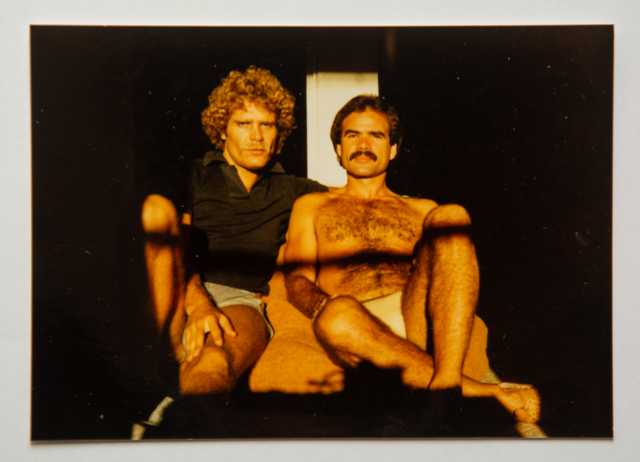The Importance of Novels in Preserving Queer History

Author: Alan Lessik
January 29, 2020
The musical Hamilton ends with the Finale, “Who Lives, Who Dies, Who Tells Your Story.” Our view of history has always been shaped not by the specific events themselves, but by who records and who remembers.Queer people are certainly not the only ones that have been eliminated from history or seen its history distorted by others. Straight white men have structured how we view (or most often do not view) the achievements and experiences of women, African-Americans, immigrants, working class people and other groups. In the last decades, our understanding of the past has changed as new voices and perspectives have worked to bring these voices back into the historical timeline.
Yet despite the control over “history” by academics, fiction has long had the power to illuminate other lives left out of textbooks, the very lives that created history. Felice Picano captured this in the title of his early masterpiece, Like People in History. Novelists and short story writers tell and preserve queer stories with their ability to create vivid and memorable details of lives and the times better than any text book. If I think about Paris in the 20’s jazz age, I recall the scenes from Joe Okownko’s debut novel, Jazz Moon; the Chicago lesbian community in the 50’s comes to life in A Thin Bright Line by Lucy Jane Bledsoe. Similarly, New York in the 80’s and 90’s is detailed in Christadora by Tim Murphy, while Saleem Haddad’s Guapa vividly drops the reader into queer lives in a modern unnamed country during the Arab Spring. I am sure each of you can add to this list.
When I wrote The Troubleseeker, I pulled from the stories my deceased partner René Valdes related to me of his life in Havana and his journey as a Marelito to the US. Upon arrival in a small shrimp boat filled to overcapacity in Key West in 1980, he was sent to a resettlement camp in Wisconsin. He was rescued from the camp from the Twin Cities Gay Cuban Taskforce and met his first lover in the US, the activist Bruce Brockway. Just two years later, Bruce was one of the first men diagnosed with AIDS in Minnesota. After his diagnosis, he focused his activism on fighting the disease (he helped to found The Minnesota AIDS Project). Brockway died in 1984 of AIDS related complications.
Those stories and others formed the backdrop of The Troubleseeker. René and I met in San Diego in 2000, and spent twelve years in our mainly long-distance relationship until he died of a terminal mental illness in 2012. After he died, I was the only one that knew all of his stories, including his final ones.
Since I was not there to witness many of his life events, as a novelist I used what I remembered of his and Bruce’s story and built upon that. When there were gaps, I filled them in, based on historical research and my own creative fantasies. I wanted his memory and experiences to be remembered; I wanted the events that were in the stories to be known.
A few years after the novel’s publication, in 2018 I was contacted by Britt Aamodt, a radio journalist in Minneapolis, who was creating a radio documentary on the early days of HIV/AIDS in Minnesota. She told me that Bruce’s and René’s name often came up but that there was virtually nothing in writing about either of them. Her research led her to my novel; in the chapters about Minnesota, she thought she recognized Bruce as one of the characters. She texted me on Twitter, “Wow. If those characters are René and Bruce, you’re telling me more about them and the early Minneapolis HIV epidemic than anyone else… Most of the people who knew them died long ago… Sorry for messaging you out of the blue but you don’t know how hard it has been to find people who can remember those long-ago days and people. Thanks for writing the book.”
Shortly after, we taped three hours of interviews about the two of them. I started with the caveat that I was novelist. By nature, I made things up in the book and by this point, I couldn’t exactly remember what René told me and what were my additions. And since Bruce had died almost 20 years before I met René, I was recalling my memories of René’s memories of Bruce. But I was also able to back up these memories with some of René’s writings about Bruce, a ton of pictures and even a video of Bruce.
Britt finished the radio documentary earlier this year. At two hours long, it was broadcast on successive days at KFAI in Minneapolis. She brought Bruce, René and others back to life in a way that only radio can do. While many details have been lost, I have done my best to keep this piece of queer history alive for current and future generations. When I heard the broadcast, I felt my job had been completed.
However, the radio documentary quickly opened two new stories. The Tretter LGBTQ Archives at the University of Minnesota expressed interest in acquiring René’s archives. I spent several months curating thirty years of his diaries, legal papers, thousands of photos and other ephemera and finally sent them off. They are now available for public use.
About the same time, a Cuban-American researcher—Lazaro J. Gonzalez at the University of Connecticut contacted me asking about René for his documentary film titled Sexilio. He is looking for perspectives of former Marielitos outside of Miami and New York. The novel gave him access to René’s life and sparked his hope for finding other participants for his documentary.
“May your stories never end” was my dedication to René in The Troubleseeker. May all of our queer stories fill in the missing gaps of our history.

